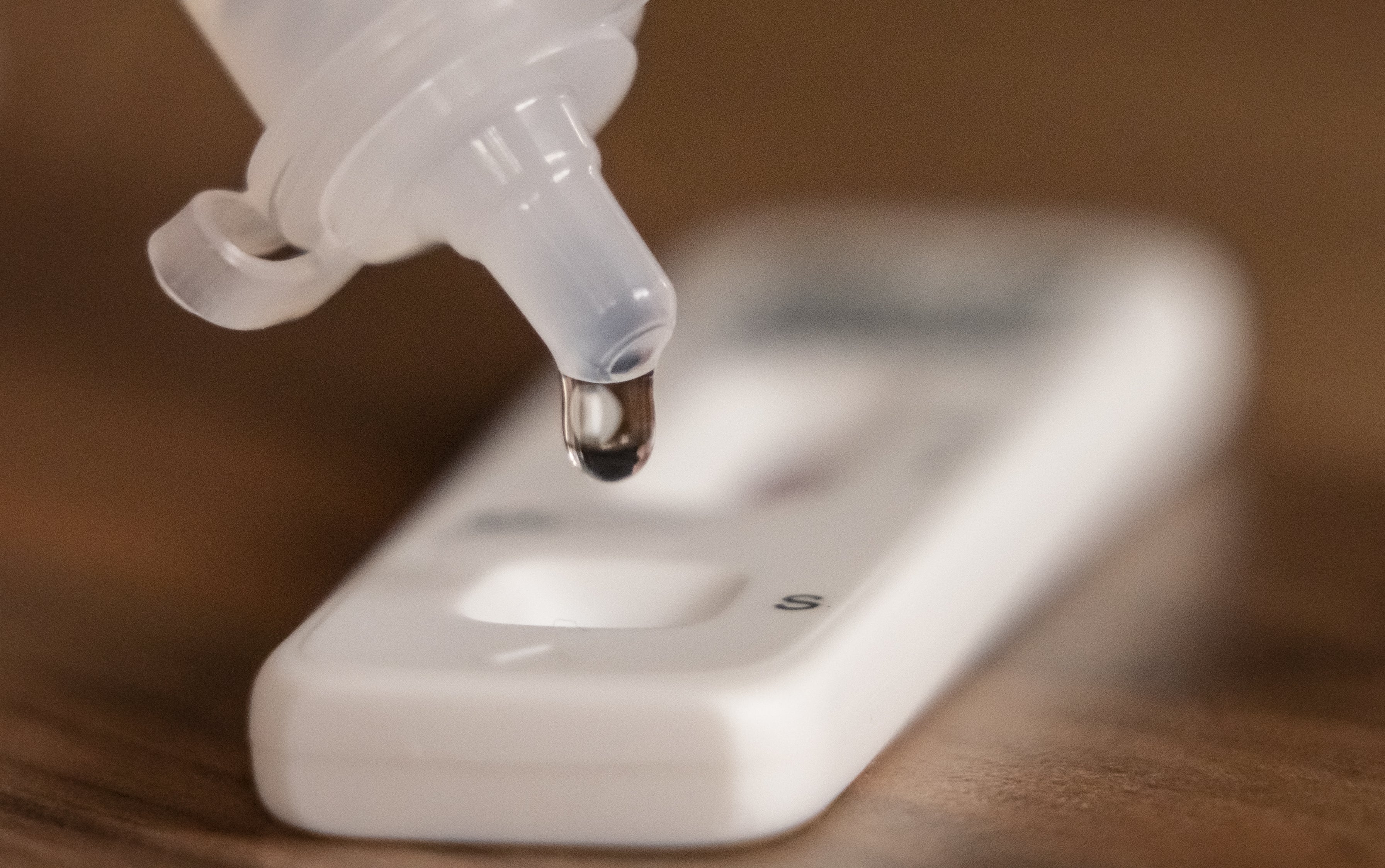
Double-vaccinated travellers will no longer be required to take a coronavirus test when arriving in the UK from February 11, the Transport Secretary has said, in a boost for half-term holidays.
Grant Shapps said the policy of post-arrival lateral flow tests had “outlived its usefulness”, telling the Commons on Monday that the change would help the aviation industry to “take back to the skies”.
Mr Shapps told MPs that the definition of fully vaccinated as “two doses of an approved vaccination or one dose of a Janssen vaccine” would remain for now.
But that the rules for those who did not count as fully vaccinated would change too.
He said: “We’ll go further, the measures for those arriving in the UK who do not qualify as fully vaccinated have not changed since last March, so the time has come to review that position too.
“Today, I can announce that passengers who do not qualify as fully vaccinated will no longer be required to do a day eight test after arrival, or indeed to self-isolate.
“They will still need to fill out a passenger locator form to demonstrate proof of a negative Covid test taken two days before they travel and they must still take a post-arrival PCR test.
“This is a proportionate system that moves us a step closer to normality while maintaining vital public health protections.”
He said the Government intends to move away from “blanket border measures” to a “more sophisticated and targeted global surveillance system”.
Earlier, the Prime Minister said the rules could be lifted because the country was “moving through the Omicron wave”.
Boris Johnson said: “So what we’re doing on travel, to show that this country is open for business, open for travellers, you will see changes so that people arriving no longer have to take tests if they have been vaccinated, if they have been double vaccinated.”
Mr Shapps said: “We promised we wouldn’t keep these measures in place a day longer than was necessary and it’s obvious to me now that border testing for vaccinated travellers has outlived its usefulness, and we’re therefore scrapping all travel tests for vaccinated people.
“Not only making travel much easier but also, of course, saving about £100 per family on visits abroad, providing certainty to passengers, to carriers and (the) vital tourism sector for the spring and the summer seasons.”
And he added this would help “ensure that 2022 is the year in which restrictions on travel, on lockdowns and limits on people’s lives are firmly placed in the past”.
Let us hope we can put the last of the lockdown obstacles behind us and make 2022 a comeback year to remember
The changes will come into effect from 4am on February 11 – in time for the half-term holiday.
easyJet chief executive Johan Lundgren welcomed the news and said: “We believe testing for travel should now firmly become a thing of the past.
“It is clear travel restrictions did not materially slow the spread of Omicron in the UK and so it is important that there are no more knee-jerk reactions to future variants.”
Christophe Mathieu, chief executive of Brittany Ferries, said: “As the barriers to travel come down, demand goes up.
“Reservations for spring and summer holidays are roaring ahead, but this latest news means we can expect demand to soar for the February half-term.
“Let us hope we can put the last of the lockdown obstacles behind us and make 2022 a comeback year to remember.”

Tim Alderslade, chief executive of airline industry body Airlines UK, said the announcement was “a landmark day for passengers, businesses and UK plc”.
Mr Shapps also confirmed that 12 to 15-year-olds in England will be able to prove their vaccination status via the digital NHS pass for international outbound travel.
Speaking in the Commons, Mr Shapps said: “Under-18s will continue to be treated as eligible fully-vaccinated passengers, which means they will not face any tests at the UK border.
“Today, I am pleased to confirm that from February 3, 12 to 15-year-olds in England will be able to prove their vaccination status via the digital NHS pass for international outbound travel.”
Mr Shapps also told MPs the UK is also set to recognise vaccine certificates from 16 further nations.
He said reconnecting to key markets will not only “boost” the UK economy but also help the aviation industry to “take back to the skies”.







